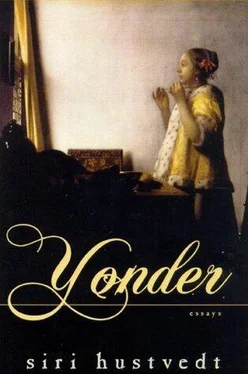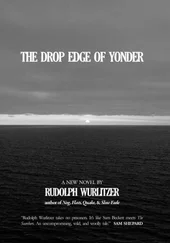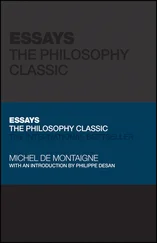The changes that were wrung upon dots which in such a position meant such a thing and in such another position meant something entirely different; the wonderful vagaries that were played by circles; the unaccountable consequences that resulted from marks like flies’ legs, the tremendous effect of a curve in the wrong place, not only troubled my waking hours but reappeared before me in my sleep.
Dickens’s use of the word despotic to describe the unintelligible characters is significant, because it suggests a hierarchy — the reader laboring under the tyranny of signs. In Our Mutual Friend there is a strong connection between despotic written characters and paternal human characters. Fathers, real ones and figurative ones, are the keepers of letters, member of a ruling class eager to sire not children but paper. Veneering, for example, hosts the “Fathers of the Scrip-church” and among them is “the father of three hundred and seventy-five thousand pounds.” Eugene Wrayburn’s overbearing father, who has pushed him into the law but never actually appears in the book, is called simply M.R.F. (My Respected Father) by his son. The ironic acronym stands in contrast to the meaning of the words, which are in effect devoured by the cryptogram. Twemlow, that modest participant in society’s gatherings, has a father figure, too — Lord Snigsworth. He never enters the story in person, either. He appears only as a portrait hung on the wall. John Harmon’s father, also invisible in death, is paper only, a figure who survives as nothing but text in the several conflicting wills he has left behind. These are paper men, mere ghostly markings somewhere between presence and absence. They are there, and they are not there.
Paternity, when associated with society, is usually mediated through signs or mirror images; and despite the fact that the thing these mediated forms represent is often unattainable, the paternal has power. Eugene stages several inner dialogues with M.R.F., and the paternal voice crushes the son with its blanket prohibitions. Harmon’s ghost manipulates his heirs through his dust fortune. And other paternal figures, although they may appear bodily in the narrative, are similarly unapproachable. Podsnap never once addresses his daughter Georgiana by name. For her, he is a specular image. The narrator tells us that Miss Podsnap’s “early views of life” were “principally derived from the reflections of it in her father’s boots.” Podsnap equates fatherhood with censorship. His job is to cut short conversations that he considers potentially injurious to “the young person”: With “a flourish of his arm,” he waves all undesirable subjects “from the face of the earth.” And again the text brings us back to the dead body through a meaningless name. When Podsnap insists that the half dozen people who have recently starved to death in the streets of London are themselves to blame, Twemlow, the mild arbiter of good sense in the novel, objects. Podsnap accuses him of “Centralization”:
He was not aware (the meek man submitted of himself) that he was driving at any ization that he knew of.… But he was certainly more staggered by these terrible events than he was by names, of howsoever many syllables.
Podsnap is the novel’s supreme middle-class being, a man ruled by repetition and summed up in the routine that signals his character: “Getting up at eight, shaving close at quarter past, breakfasting at nine, going to the City at ten, coming home at half past five and dining at seven.” The ritual allows for nothing but an insular domestic rhythm. What happens in the “city” is not included. The city where dust flies and people starve falls out of the system. A reified language of resistance to the world, a language of exclusion and forgetfulness, Podsnappery resides in the territory of the despotic signifier — of L.S.D. and M.P. and M.R.F., and of “ogolies” and “izations,” systems that are meant to explain experience. But the very idea of a system is that nothing is forgotten. Forgetfulness is the outlaw of system, and yet the language of the fathers, the lawmakers, turns on repression and silence.
Paternity is a crisis of meaning in the novel, an alphabet soup of nonsensical directives. Harmon Senior has left wills all over his property, inheriting and disinheriting his son according to his latest whim. Twemlow’s powerful cousin, Lord Snigsworth,
puts him [Twemlow] under a kind of martial law; ordaining that he should hang his hat on a particular peg, sit on a particular chair, talk on a particular subject with particular people, and perform various exercises; such as sounding the praises of the Family Varnish (not to say Pictures), and abstaining from the choicest of the Family Wines unless expressly invited to partake.
The law of Snigsworthy Park is an absolute, arbitrary, military law erecting boundaries and thresholds that cannot be questioned: hang your hat here, sit here, say this. Paternal figures in the guise of military men appear several times in the book. Bella Wilfer dreams of a General husband, and Eugene explains that he chose M.R.F. because it sounds “military and rather like the Duke of Wellington.” But the language of the despot is the blather of edict. Like Podsnappery, like last wills and testaments, it does not and cannot tolerate a reply. There is no rejoinder to this kind of speech, because even if an answer is given, it isn’t heard. It is speech that annihilates the interlocutor.
If the law is by definition paternal — the site of symbolic separations through language — then Dickens presents us with a failure of that function. Symbolic structures appear as a muddle of blurred boundaries and meanings. But what is this all about? The failure is visited on the children. Denomination means being adopted into a community of speakers, and names are given by the father. Patronyms are signs of genealogy, legitimacy, and therefore coherence. They carry the weight of the past and a line of descendance. The father’s name, borne by the legitimate and lost to the illegitimate, is the nexus for what becomes in Dickens a battle for a single name and a fixed identity. To have no legitimate name is to be no one. In Our Mutual Friend, Betty Higden explains to the Boffins that the love child she has informally adopted has “no right name.” He is called “Sloppy,” a name that unearths and repeats the novel’s myriad metaphorical threads — sloppy, slop, garbage, waste, mud, fog, dust. Random coupling is a plague that destroys barriers and erases distinctions, for it creates a world in which children cannot identify their fathers, and therefore cannot identify themselves. But the issue of identity that shapes the stories of the novel cannot be posed as a simple polarity between a lawful name and an unlawful one; it is far more subtle than that.
Although John Harmon is legitimate, he suffers from the same fragmentation on the level of naming that Sloppy does. With typically ingenious metaphorical leaps, Dickens satirizes the law through the alphabet and then links its failure to the person of Harmon and his problems with his dead father. The law in the novel is exemplified in the droopy legal practice of Lightwood and Wrayburn. The young but already world-weary Eugene Wrayburn has gone into the law to please M.R.F., and his chief contribution to the office is not enthusiasm but a piece of furniture: a secretaire, described as “an abstruse set of mahogany pigeon holes, one for each letter of the alphabet.” The lawyers, however, have few clients and the pigeonholes are empty. The alphabetical filing system refers to no real persons. It is the clerk, suitably named Blight, who invents clients for the firm when Boffin comes seeking legal advice from Lightwood and Wrayburn—“Mr. Aggs, Mr. Baggs, Mr. Caggs, Mr. Daggs…” But later in the story, the secretary comes up again when illiterate Boffin confuses this piece of furniture with the human Secretary, John Harmon, alias Rokesmith, who comes to ask for a job. “We have,” he says, “always believed a Secretary to be a piece of furniture, mostly of mahogany.” Within the world of the book, the mistake is a consistent one. Like the ghostly nobodies invented by the clerk for the law office, Harmon’s pseudonymous existence is plural and arbitrary — a spectral existence indicated by the many names he is given in the book: Julius Handford, John Rokesmith, Secretary, Jack a Manory, Chokesmith, Artichoke, Sexton Rokesmith, Fortune Teller, Captain, Blue Beard, Mendicant, The Man from Somewhere, The Man from Nowhere, Ghost, and Nobody. Significantly, the missing name is the patronym: Harmon. In the pseudonym he keeps longest, Harmon holds on to his Christian name: John. The son’s mock death becomes a way of circumventing the father’s will, becoming invisible through a name change. What remains is a secretary, and whether furniture or human, it is a multiple anatomy of holes.
Читать дальше












